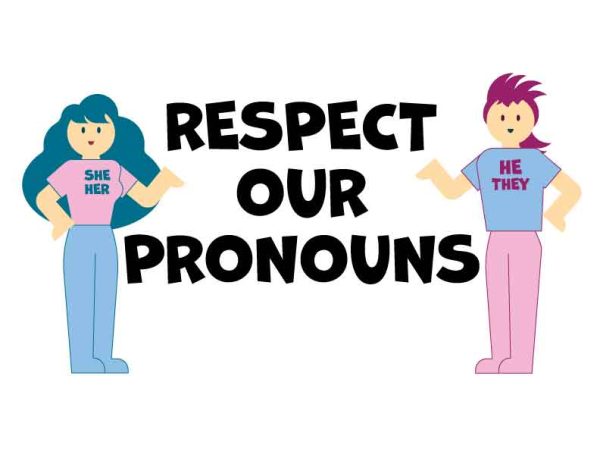
According to the National Center for Transgender Equality, sex-based harassment is unlawful when it is “severe or widespread” and an employer does not take steps to stop it. Jada Hauser | Washtenaw Voice
Know what rights you have, how to defend them and allies at WCC
Charlie Trumbull
Staff Writer
In 2020, the Supreme Court affirmed in the Bostock v. Clayton County case that discrimination based on gender identity or expression goes against the Civil Rights Act of 1964, which protects against discrimination based on sex.
The landmark SCOTUS case influenced the Michigan government. In 2023, Michigan Senate Bill 4 amended the Elliot-Larson Civil Rights Act of 1976 to prohibit discrimination based on sexual orientation and/or gender identity or expression and defines gender identity as “having or being perceived as having a gender-related self-identity or expression whether associated with an individual’s assigned sex at birth or not.”
Incorrect pronoun usage is a common form of transgender discrimination in the workplace. Ven Medrano, president of the LGBTQIA+ alliance on campus, OutSpace, said, “pronouns should be respected in the workplace because, personally, I just think [it’s] a basic sign of respect. It’s respecting someone as a fellow human.”
Although the amendment went into effect in February 2024, transgender Michiganders continue to be harassed at work. In a 2015 report by the U.S. Transgender Survey, 49% of transgender employees surveyed were denied promotions, had coworkers share their private information with others, and many other aggressions.
According to the National Center for Transgender Equality, sex-based harassment is unlawful when it is “severe or widespread” and an employer does not take steps to stop it.
This can include jokes or derogatory comments about transgender people, repeated and intentional use of the wrong name or pronouns, as well as invasive, disrespectful personal questions.
When the harasser is a superior, taking steps towards correcting their behavior can be incredibly intimidating.
“I would say something along the lines of ‘we’re working together and we need to work in a professional environment that includes treating me with respect,” Medrano suggests. “A good way to be respectful of me is by referring to me [correctly].”
2021 was the deadliest year for transgender women in the United States with 45 people being murdered for their gender identity, according to the Human Rights Campaign, which tracks international human rights violations. In 2024 that number is already at 25.
“Trans people have been villainized,” Medrano said in reference to the uptick in transgender violence since 2020. “As if we are a danger and a cause for concern.” The threat of violence against transgender people creates a strong sense of bravery for those who are open about their gender identity in the workplace.
For those who are continuously being harassed or misgendered in the workplace, the first step to take is reviewing the employers Equal Employment Opportunity procedures and contacting Human Resources.
Filing an internal complaint creates a documentation of the issue and, if it continues further, an employee can use this to file a charge of sex discrimination with the US Equal Opportunity Commission. This can lead to changes in policies and/or discipline.
For transgender students looking for a place to be themselves, OutSpace is always available to create a welcoming community.
“Our club meetings are pretty relaxed and chill so we try to foster a welcoming environment and we recognize that everyone is on their different paths of understanding [themselves],” Medrano imparts. “We are trying to make a place where queer people can be seen and heard and can feel like they belong.”

